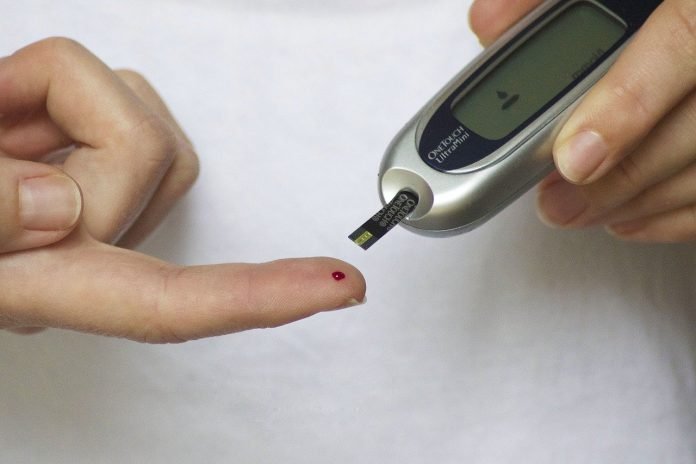
Intermittent fasting is known to improve sensitivity to the blood-glucose-lowering hormone insulin and to protect against fatty liver.
In a new study, researchers found that an intermittent fasting method also helps reduce pancreatic fat.
They showed the mechanism by which pancreatic fat could contribute to the development of type 2 diabetes.
The research was conducted by a team at Deutsches Zentrum fuer Diabetesforschung DZD.
Fatty liver has been thoroughly investigated as a known and frequently-occurring disease.
However, little is known about excess weight-induced fat accumulation in the pancreas and its effects on the onset of type 2 diabetes.
In the study, the team divided the overweight mice, which were prone to diabetes, into two groups: The first group was allowed to eat ad libitum — as much as they wanted whenever they wanted.
The second group underwent an intermittent fasting regimen: one day the rodents received unlimited chow and the next day they were not fed at all.
After five weeks, the researchers observed differences in the pancreas of the mice: Fat cells accumulated in group one. The animals in group two, on the other hand, had hardly any fat deposits in the pancreas.
Mice resistant to diabetes due to their genetic make-up despite excess weight had hardly any fat in the pancreas, but instead had fat deposits in the liver.
The team says fat accumulations outside the fat tissue, e.g. in the liver, muscles, or even bones, have a negative effect on these organs and the entire body.
The findings suggest that not only liver fat should be reduced to prevent type 2 diabetes.
Under certain genetic conditions, the accumulation of fat in the pancreas may play a decisive role in the development of type 2 diabetes.
Intermittent fasting could be a promising therapeutic approach in the future. The advantages: it is non-invasive, easy to integrate into everyday life, and does not require drugs.
Intermittent fasting means not eating during certain time slots. However, water, unsweetened tea, and black coffee are allowed around the clock.
Depending on the method, the fasting lasts between 16 and 24 hours or, alternatively, a maximum of 500 to 600 calories are consumed on two days within a week.
The best-known form of intermittent fasting is the 16:8 method which involves eating only during an eight-hour window during the day and fasting for the remaining 16 hours. One meal — usually breakfast — is omitted.
One author of the study is Professor Annette Schürmann.
The study is published in the journal Metabolism.
Copyright © 2020 Knowridge Science Report. All rights reserved.



